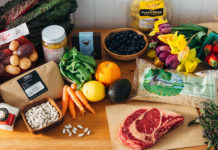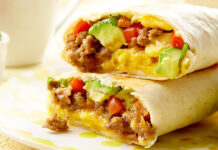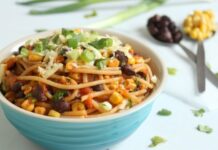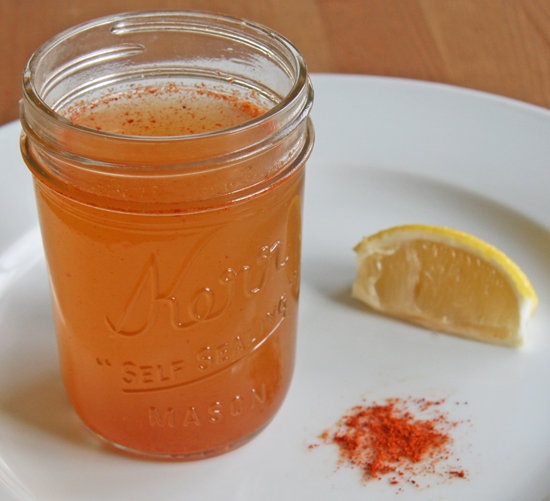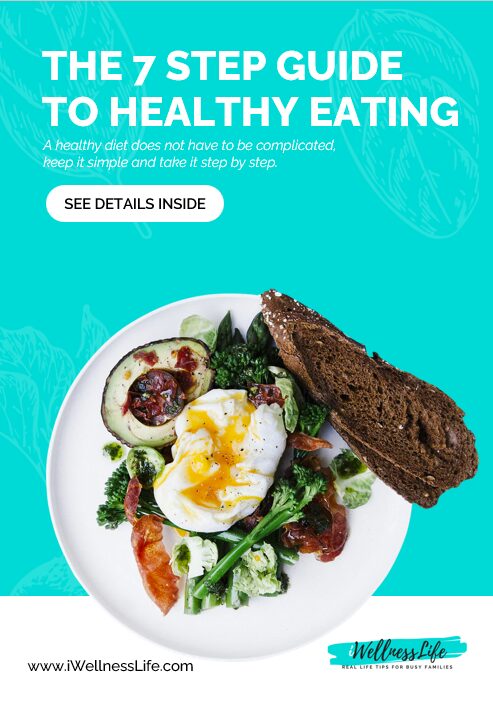Ever wonder what to eat after a sweaty workout? The right post-workout meal can be your best friend. It’s all about muscle recovery and getting those muscles back in action. Picture your body like a car needing fuel after a long drive. You need to replenish energy with the perfect balance of protein and carbs within the first few hours. Think of it as giving your body a high-five for a job well done. And don’t forget hydration! It’s like oil for that car engine. So, let’s chat about the best foods that help your muscles recover and keep you going strong.
Key Takeaways
-
Protein is key for muscle recovery and repair. Aim for 20-40 grams every few hours.
-
Carbs help replenish energy after a tough workout. Try 0.4 grams per pound.
-
Stay hydrated to boost recovery and prevent injuries after exercise.
-
Timing matters! Eat your post-workout meal within 30 to 60 minutes.
-
Avoid sugary and fatty foods for effective recovery.

The Role of Macronutrients in Post-Exercise Recovery
Understanding how macronutrients aid post-exercise recovery is crucial for athletes and gym enthusiasts. After a tough workout, knowing what to eat for recovery is like having a secret weapon. Protein is the hero, helping muscle protein synthesis and repair. It starts by eating 20-40 grams of protein every 3-4 hours. Carbs come next, like a trusty sidekick, ready to replenish energy stores, especially after marathon sessions. Think of healthy fats as your body’s slow-burning fuel, sustaining energy without derailing recovery. Curious about what to eat after a workout for recovery? Try grilled chicken or a veggie omelet. Need more inspiration? I recently shared more tips on creating a nutritious meal or snack for post-workout recovery here. Lastly, timing is essential; aim to refuel within 30 to 60 minutes for the best results.
Protein for Muscle Repair and Building
When pondering what to eat after a workout for recovery, protein takes the spotlight. It’s a key player in rebuilding those tired muscles. You might think of protein as the construction crew on a site, tirelessly repairing and fortifying helping muscle protein rebuild effectively. And if you’re curious about timing, consuming protein before exercise can reduce post-workout needs.
Now, let’s talk favorites. Grilled chicken or a protein smoothie could be your go-to options. They not just satisfy the taste buds, but also provide a swift recovery boost. Even a humble veggie omelet can do wonders. It’s about balancing your meal or snack wisely….timing, choice, and portion matter.
Carbs to Replenish Energy Stores
Replenishing energy stores with the right carbs is a game-changer after a demanding workout. Your muscles, tired and needing a reboot, feast on carbs to restore glycogen. Imagine them as fuel for your engine, getting you ready for the next exercise. Which is about 0.4 grams per pound of body weight. That’s like a serving of whole grains or a banana, simple yet effective. Now pairing carbs with a protein smoothie, creating a nourishing post-workout meal. Ever tried that? It’s delicious and keeps you on your toes. For extra inspiration, I’ve shared some delightful recipes over here. Timing is everything, so munching on these carbs within 30 minutes post-workout is key to a speedy recovery.
Fats for Sustained Energy and Nutrient Absorption
Nutrient absorption and sustained energy play a crucial role in post-exercise recovery. You might wonder, “What to eat after a workout for recovery?” Fats, though often misunderstood, are your slow-burning companions. Think of them as the tortoise in the race, providing energy that lasts. Whole foods like eggs and milk are excellent choices, as studies indicate they benefit recovery without slowing nutrient absorption.
When combined with a balanced post-workout meal, fats help ensure you’re fueled for longer. If you’re curious about creative ways to incorporate these into your meals, check out my Mason Jar High Protein Southwest Chicken Salad recipe here.
Remember, balancing your fats with proteins and carbs is key to optimizing muscle protein synthesis. This ensures your body gets all it needs to bounce back after intense training.
Why Hydration is Crucial after a Tough Workout
After a challenging workout, staying hydrated is like giving your body a fresh start. Water not just quenching thirst—it aids in muscle recovery and helps to replenish energy. Imagine your muscles as a sponge; they soak up nutrients better when adequately hydrated. Knowing what to eat after a workout for recovery becomes simpler with this mindset. Fluids help transport nutrients to cells, optimizing how your body uses the protein and carbs from nourishing post-workout meals. Prioritizing fluids alongside a balanced meal or snack. And if you’re into smoothies, take a peek at my 7-day smoothie diet guide. It’s a refreshing way to enjoy a liquid feast while keeping those hydration levels in check.

Importance of Meal Timing for Enhanced Muscle Protein Synthesis
Mastering the timing of meals is like finding the rhythm in a dance. Consuming nutrients shortly after a workout influences how effectively muscle protein synthesis occurs. This means your muscles repair and grow with more gusto. Ever wondered what to eat after a workout for recovery? Think of a mix of protein and carbs. Imagine a perfect post-exercise feast like grilled chicken with brown rice. It’s simple but does the trick! Catching that “anabolic window” post-exercise can make a world of difference. A nourishing post-workout meal is essential. Plus, if you aim to replenish energy, tossing in a bit of good fat, like avocado, can help. Remember, it’s not just about what you eat, but when. Keep this in mind, and you’ll dance to the beat of faster recovery!

5 Best Foods to Eat after a Workout
Finding out what to eat after a workout for recovery can be a game-changer. A top choice is grilled chicken. It’s packed with protein to help rebuild muscles. Pair it with quinoa, a whole grain rich in carbs, for a balanced meal or snack.
Looking for something creamy? Greek yogurt mixed with berries offers proteins and antioxidants. These help in muscle repair and fighting inflammation.
Bananas, nature’s energy bars, are perfect for replenishing lost potassium and carbs. Next, consider almonds. They’re rich in healthy fats and vitamin E for muscle function. Lastly, a smoothie made with protein powder, spinach, and a banana can round out nourishing post-workout meals. This combo is refreshing and supports muscle protein synthesis. Imagine sipping your way to recovery with each delicious gulp.

Avoid These Foods for More Effective Recovery
Knowing what to eat after a workout for recovery is crucial, but equally important is avoiding certain foods. Some choices can stall your progress. Here’s a list to steer clear of:
-
Sugary drinks: They might seem refreshing, but they can spike insulin levels without offering lasting energy. Think twice before grabbing that soda or sweetened iced tea.
-
Greasy fast food: Tempted by a quick burger? It’ll weigh you and your recovery efforts down.
-
Pastries: Sure, donuts are delightful, but they can derail your exercise gains.
-
Processed protein bars: Not all bars are created equal. Some are just candy in disguise.
-
Alcohol: A nightcap might sound relaxing, but it can hinder muscle protein synthesis.
-
Salty snacks: Chips and pretzels may cause dehydration, counteracting your recovery efforts.
Nutritional Benefits of Consuming Protein-Packed Snacks Post-Workout
Exploring the nutritional perks of protein-rich snacks post-exercise, you’ll find they play a key role in recovery. Think of them as your body’s repair kit after a strenuous workout. They help mend those tiny muscle tears, leading to stronger muscles. So, what to eat after a workout for recovery? Cottage cheese or protein smoothies are excellent choices. They’re easily digestible and quick to prepare. Timing is key, too. Grab your snack within 30 to 60 minutes after your session to maximize benefits.
-
Cottage cheese for its slow-digesting casein.
-
Greek yogurt paired with fruit for a tasty treat.
-
Protein smoothies with a scoop of whey or plant-based protein.
-
Hard-boiled eggs for convenience.
-
Nuts and seeds for a crunchy kick.
-
Lean turkey slices with whole-grain bread.
-
Edamame for a plant-based protein punch.
These protein-packed snacks will have you bouncing back in no time!

How to Balance Your Post-Workout Meal or Snack
Finding the right balance between carbs, proteins, and fats in your post-exercise meal or snack is crucial. Knowing what to eat after a workout for recovery can make all the difference. Here’s a quick rundown:
-
Carbs: Essential for replenishing energy. Opt for whole grains or fruits.
-
Proteins: Vital for muscle repair. Consider lean meats or plant-based options.
-
Fats: Include healthy fats like avocado or nuts for sustained energy.
-
Timing: Aim to eat within 30 to 60 minutes after your workout.
-
Hydration: Don’t forget to drink plenty of water.
-
Portion Control: Adjust portions based on workout intensity.
-
Variety: Mix different foods to keep meals interesting.
Ensure your post-workout choices are as dynamic as your exercise routine.

When to Eat for Maximum Recovery Benefits
Pinpointing the ideal time to eat after a workout can make a big difference. Eating within 30 to 60 minutes post-exercise can boost recovery. This time window is perfect to help the body refuel and repair.
The right combination of nutrients is key during this period. Opt for protein and carbs, as these help rebuild and restore energy. A balanced meal or snack could be a game-changer here. Think of foods like grilled chicken paired with a sweet potato, or a Greek yogurt with some berries.
Hydration also plays a starring role. Keep water or a hydration drink handy to replace lost fluids.
Incorporate these strategies, and your body’s recovery process will feel smoother than a well-oiled machine. Having a clear plan ensures you bounce back faster and are ready for your next workout adventure!

Realistic Examples of Post-Exercise Meals and Snacks
For those curious about what to eat after a workout for recovery, exploring some realistic meal and snack ideas could be enlightening. Here’s a handy list to spark inspiration:
-
Grilled chicken with quinoa and steamed veggies is a solid choice.
-
A smoothie with spinach, banana, and a scoop of protein powder offers a punch of nutrients.
-
Scrambled eggs on whole-grain toast can be a quick, satisfying option.
-
Yogurt with mixed berries and a sprinkle of granola makes a delightful treat.
-
Cottage cheese paired with pineapple chunks creates a sweet and savory combo.
-
Whole-grain wrap with turkey, avocado, and leafy greens wraps up taste and nutrition.
-
A simple tuna and avocado salad delivers essential fats and proteins.
These ideas will help fuel your body and aid recovery. Are your taste buds tingling yet? Give one a try!

How to Customize Your Post-Workout Nutrition for Your Fitness Goals
Knowing what to consume after exercise for recovery can impact your results. To match your fitness aims, tweak your post-workout choices like a chef perfecting a recipe. Protein aids muscle repair, but too much can be overkill if you had some pre-workout. Don’t skip on carbs; they refill energy tanks, especially if you’ve been sweating it out for hours. Hydration? It’s not just a suggestion; it’s a must-have for keeping everything running smoothly. Timing is another piece of the puzzle. A well-timed meal or snack, within an hour of finishing, can be the cherry on top of your workout sundae. Whether you’re munching on a turkey wrap or sipping a protein shake, it’s about aligning with what you’re aiming for, be it building or toning. With these tweaks, you’re setting the stage for success.

Subscribe To Our VIP Newsletter
Join our VIP mailing list to receive additional content that goes even deeper into the latest tips to ensure you and your families health, fitness and wellness.





